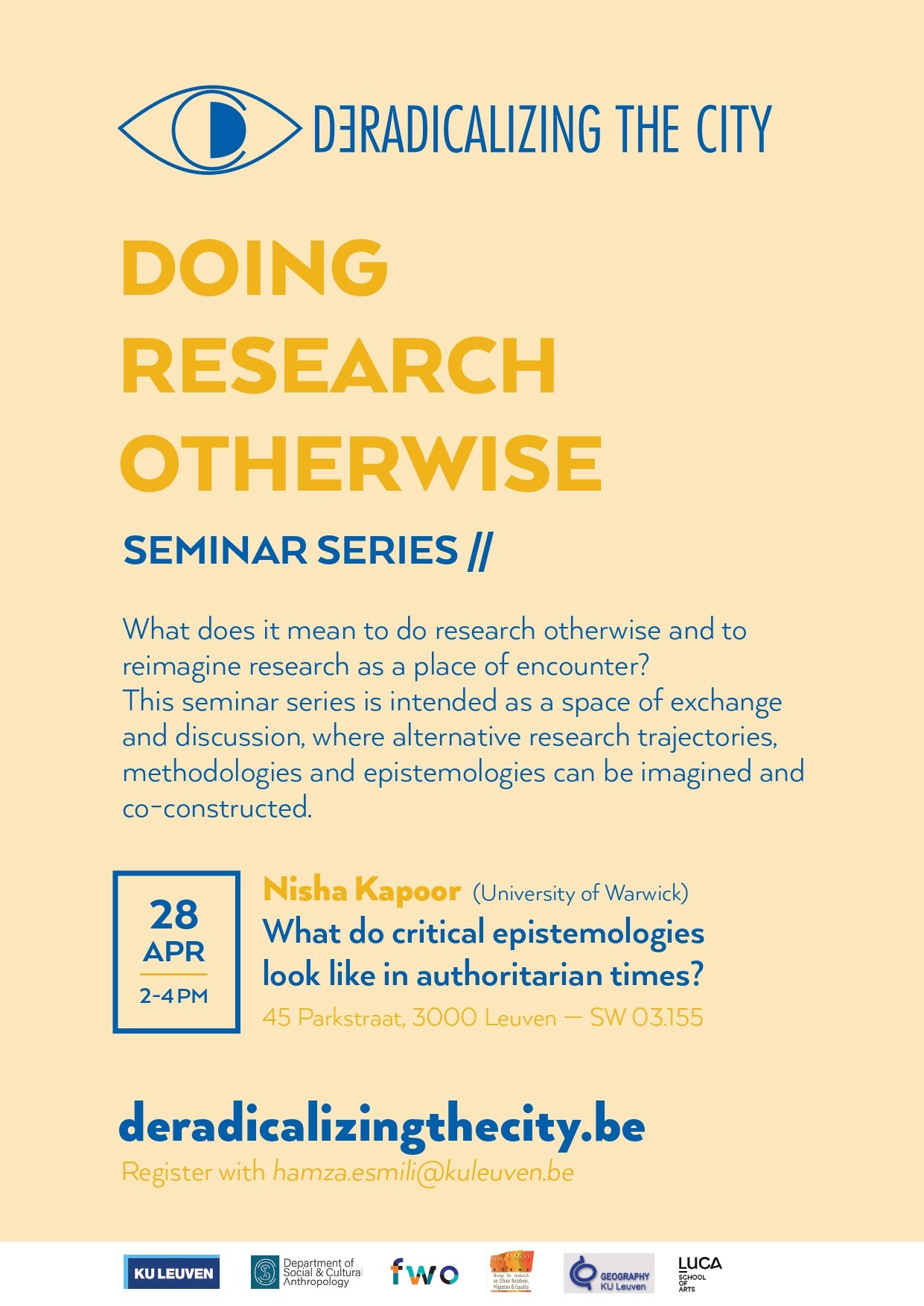What do critical epistemologies look like in authoritarian times?
Critical research within the Western academy has for some time interrogated and critiqued the symbiotic relationship between science, knowledge production and the state, noting the central role of the science and social science disciplines for furthering the needs and desires of the liberal capitalist state (in both its domestic and imperialist forms) (Foucault 2007, Said 1978). For the imperial state, social science research enabled more productive management of both its domestic and colonised populations while the broader institution of education has been pivotal for instilling key ideological norms. The paradox, as such critical research demonstrates, is that education is never ‘exclusively associated with domination’ (Giroux 2006). Education offers also promise; a tool for enabling democratic politics and participation, can be liberatory and empowering (Adorno 1998). For all the positivist social science methodological approaches core to normative parts of the academy there is also (at least in the UK) the strong legacy of the cultural turn, the work of scholars such as Stuart Hall, Paul Gilroy, Avtah Brah and Gail Lewis amongst others who helped to pave the way for alternative forms and approaches to research and analysis. Within the cannon of work on the national security state against the research produced in the mould of state disciplines such as criminology and security studies, there has been a plethora of research that has sought to engage in participatory methods, auto-ethnography and collaborative forms of knowledge production to provide alternative frames of thought.
Yet the critique of sciences and social sciences as tools of state power presumes the continued centrality of the university, as an institution of knowledge generation and scientific legitimation, for state power; that is, it assumes the continuity of the liberal state outside of the global authoritarian turn which is shifting and reorienting the place of Higher Education. Rather, with this shift towards hardened and normalised authoritarianisms in a context of burgeoning data capitalism, higher education is increasingly pursued solely as a site of ‘vocational training’, regarded as outdated to some degree by the capacity of data technologies, and dismissed within culture wars by a growing populist right as site of far-left radicalism. This authoritarian turn legitimates an assault on the liberal elements of the state including liberal principles and ethics embedded within social science research. Consequently how we think about the disciplinary aspects of knowledge production and what critical epistemologies of state surveillance might look like are made all the more complex. In this paper I explore this development drawing on my research on the security state and examples from India and the UK.

